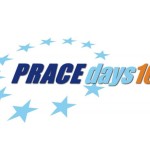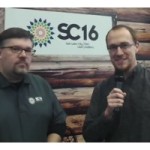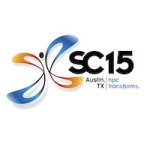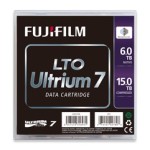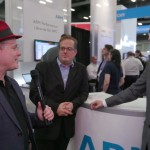In this video from SC15, Rich Brueckner from insideHPC moderates a panel discussion with Hewlett Packard Enterprise HPC customers. “Government labs, as well as public and private universities worldwide, are using HPE Compute solutions to conduct research across scientific disciplines, develop new drugs, discover renewable energy sources and bring supercomputing to nontraditional users and research communities.”
Archives for November 2015
PRACEdays16 Extends Deadline for Submissions to Dec. 13, 2015
PRACEdays16 has extended the deadline for its Call for Participation to Dec. 13, 2015. Taking place May 10-12, 2016 in Prague, the conference will bring together experts from academia and industry who will present their advancements in HPC-supported science and engineering.
Video: A Preview of the PASC16 and SC16 Conferences
In this video, Torsten Hoefler from ETH Zurich and John West from TACC discuss the preview the upcoming PASC16 and SC16 conferences. With a focus on Exascale computing and user applications, the events will set the stage for the next decade in High Performance Computing.
TUM Germany Wins Highest Linpack Award on RSC system at SC15 Student Cluster Competition
Today Russia’s RSC Group announced that Team TUMuch Phun from the Technical University of Munich (TUM) won the Highest Linpack Award in the SC15 Student Cluster Competition. The enthusiastic students achieved 7.1 Teraflops on the Linpack benchmark using an RSC PetaStream cluster with computing nodes based on Intel Xeon Phi. TUM student team took 3rd place in overall competition within 9 teams participated in SCC at SC15, so as only one European representative in this challenge.
Parallel Methods in Financial Services for Intel Xeon Phi
Basic optimization techniques that include an understanding of math functions and how to simplify can go a long way towards better performance. “When optimizing for a parallel SIMD system such as the Intel Xeon Phi coprocessor, it is also important to make sure that the results match the scalar system. Using vector data may cause parts of the computer program to be re-written, so that the compiler can generate vector code.”
Speeding Up Applications at SC15
Software for data analysis, system management, and for debugging other software were be among the innovations on display at SC15 last week. In addition to the software, novel and improved hardware will also be on display, together with an impressive array of initiatives from Europe in research and development leading up to Exascale computing.
Video: PBS Pro Workload Manager Goes Open Source
In this video from SC15, Sam Mahalingam from Altair discusses the HyperWorks Unlimited Virtual Appliance and the new open source version of PBS Pro. “Our goal is for the open source community to actively participate in shaping the future of PBS Professional driving both innovation and agility. The community’s contributions combined with Altair’s continued research and development, and collaboration with Intel and our HPC technology partners will accelerate the advancement of PBS Pro to aggressively pursue exascale computing initiatives in broad classes and domains.”
FujiFilm Qualifies Next-Gen LTO-7 Cartridge
Last week at SC15, Fujifilm announced that its next-generation LTO Ultrium 7 data cartridge has been qualified by the LTO technology provider companies for commercial production and is available immediately. FUJIFILM LTO Ultrium 7 has a compressed storage capacity of 15.0TB with a transfer rate of 750MB/sec assuming 2.5:1 compression ratio. This capacity achievement represents a 2.4X increase over the current LTO-6 generation.
Apply Now for Blue Waters Graduate Fellowships
NCSA is now accepting applications for the Blue Waters Graduate Program. This unique program lets graduate students from across the country immerse themselves in a year of focused high-performance computing and data-intensive research using the Blue Waters supercomputer to accelerate their research.
Video: Pathscale Compilers Power ARM for HPC at SC15
In this video, Jason Souloglou and Eric Van Hensbergen from ARM describe how Pathscale EKOPath compilers are enabling a new HPC ecosystem based on low-power processors. “As an enabling technology, EKOPath gives our customers the ability to compile for native ARMv8 CPU or accelerated architectures that return the fastest time to solution.”


